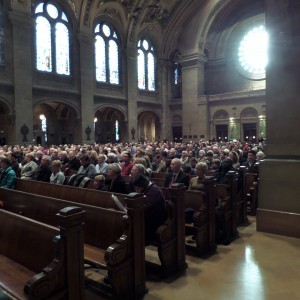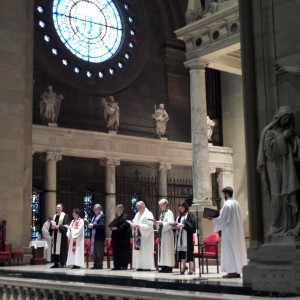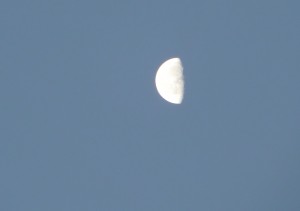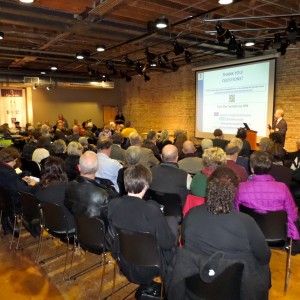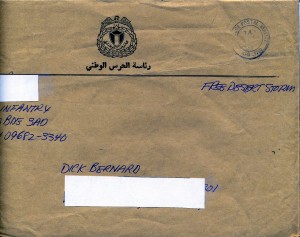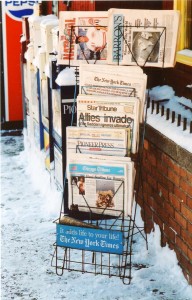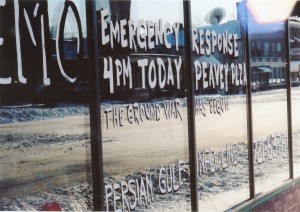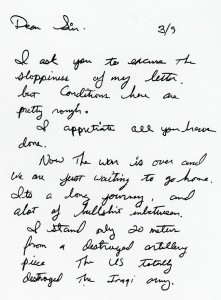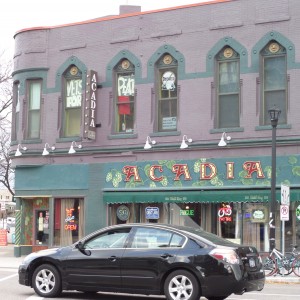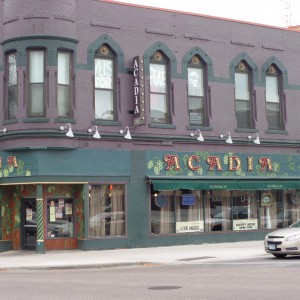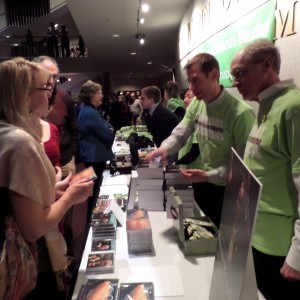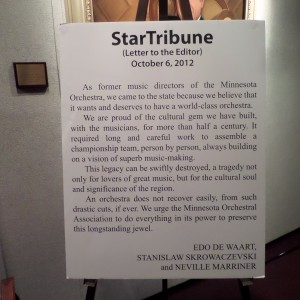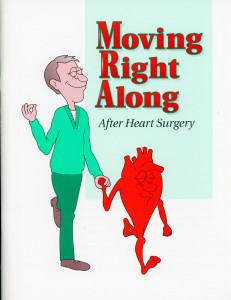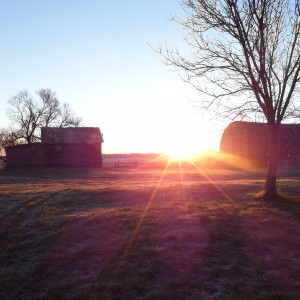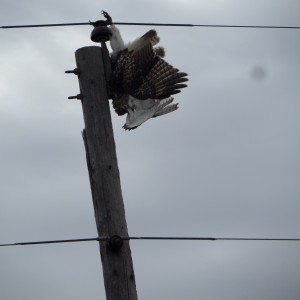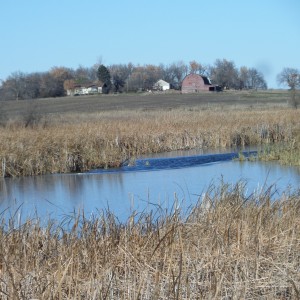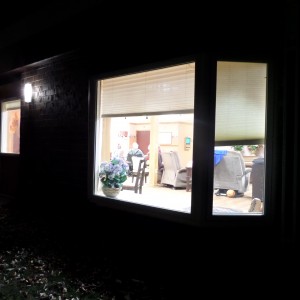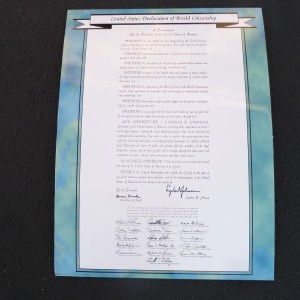COMMENTS as received to original post:
from Jane Peck, Nov 23: I have been thinking about the explosion of the arts across Minnesota and the USA during the early 1960s. After hearing the speech JFK intended to give in Dallas I think I know why. He spends about 5 minutes explaining the crucial importance of the arts to all societies, especially our own. His efforts began a strong chain of events that continued after his death. The early 1960s boast the birth of the National Endowment for the Arts, in Minnesota the birth of the Guthrie, the Minnesota Ballet, MN Opera, Nancy Hauser Dance Company, not to mention the planning for our freeway system. Yes, taxes were higher… We got more than our money’s worth!
from Bruce, Nov 22: Thanks Dick for this exercise. Very interesting to read a perspective from all the folks I see at MAPM. I was two years old when JFK was assassinated so “out of the loop” but those times did in fact greatly impact my life and the lives of all Americans. From what I have read and learned, Kennedy wanted to end the craziness of the military build up. Although Vietnam would be an argument differently I do believe that he genuinely wanted to keep the military spending and growth in check. That obviously has not happened since that time. Where might we be if we had taken a different path in this country?
I would love to get a copy of his speeches. Let me know what I need to do.
Response from Dick: I have the extracts of the 16 speeches from the record on CD. The record does not seem to be copyrighted, as it is simply recorded portions of actual speeches given by JFK 1960-63. Simply request more information from me: dick_bernardATmsnDOTcom.
From John L. Nov 22: Great job Dick – I love reading the posts. For many like me that left HS in 1961, the next eight years would be the best and worst of times. And like many of my peers, I had no idea how this thing was going to end.
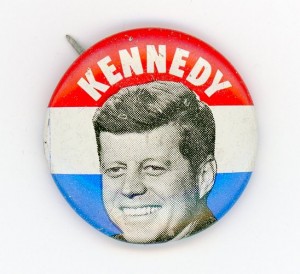
small campaign button one inch diameter from 1960 campaign
On November 15, I asked a bunch of friends to think about the following question and respond if they wished:
“Rather than focusing on “where you were, then”, or such, I’d really like you to reflect some comments about how the Kennedy-Johnson years (1961-69) impacted on you personally, and play out in your attitudes and work today.”
Nineteen folks ‘took the bait’, in an assortment of ways.
Whoever said whatever is presented exactly as conveyed by them. Four longer responses are towards the end.
All the responses are very interesting.
My own response to my own request is at the end of the post. I wrote it before receiving any responses. Also included is a post-summary.
William Klein: I have some deeply ingrained feelings about the Kennedy-Johnson years.
Positive Feelings:
1. Progress in Civil Rights leading to Johnson’s Great Society program.
2. The origin of Medicare in 1965 under President Johnson.
Negative Feelings:
1. Our involvement in Vietnam. The Vietnamese were trying to shed the yoke of French Imperialism and won the battle only to lose the Geneva Peace Accord. This led to our disastrous involvement with great loss of human life and national treasure.
2. The loss of respect of the Hoover’s FBI in their/his involvement of trying to smear Martin Luther King, JR with false statements, wire taps. etc.
Judy Berglund: The Kennedy-Johnson years brought us the Civil Rights Movement (started before JFK), the War in Vietnam, a War on Poverty. Those of us who came of age during those years were shaped by them. For years, my generation was split over Vietnam (our little boys had Scoutmasters who fought and teachers who were conscientious objectors. Veterans weren’t honored as they should have been, nor were conscientious objectors.)
I grew up in a conservative family, but became a liberal during this era. I believed the war was wrong, that we could fight poverty and win, that we could create a society that “judged our little children not by the color of their skin, but by the content of their character.”
Most of us were appalled when LBJ became our president that fateful November day, but we shouldn’t have been. Like JFK, Johnson believed that government could and should be a source of good, that we can collectively solve our problems. His mistake was escalating the war.
The other day, I watched the first of many JFK documentaries, and I found myself asking, “What would have happened if JFK hadn’t gone to Dallas? What might have been?”
Charlie Rike: I have always felt, that if JFK would have lived, he probably would have been re-elected & the US would never have been so involved in the very life wasting mess of Viet Nam for those many years. What a waste that was in so very many ways & for all the Soldiers, Sailors & Marines that served their very patriotic duty going to Viet Nam. I am proud that so many served, but I think you know what I mean.
The evening of November 22nd we are having a special presentation remembering JFK at our local School Auditorium here in little Ol’ Pine City [MN], sounds very interesting & I do plan on attending.
Flo Hedeen: In 1962 my speech for the ND 4-H Speaking Contest earned me a Grand Champion. I spoke about Peace Corps, a new initiative with a fresh approach to world problems, birthed with the Kennedy administration and the President’s appeal to: “Ask not what your country can do for you. Ask instead what you can do for your country.” On graduation from NDSU in Fargo, ND, I was accepted in the Peace Corps to serve in the Dominican Republic. Helping the host country nationals with whom I worked through the Extension Service and in my barrio in San Francisco de Macoris was the least I did! Learning about and living in a culture totally different from my own and becoming an ambassador for Peace with Justice to the present day was by far more important. Thank you, President Kennedy, for launching a program that continues to serve the people of the Dominican Republic and around the world, bringing actions, not just words, and greater understanding of the world in which we live to the volunteers that now include my sister, Mary Ann Maher, 71, serving in the South Pacific. Way to go, Mary! Thank you!
Florence Bernard Hedeen – DR 18, 1966-68
Wayne Wittman: From 1961-1969 I experienced a citizenship conversion from confidence in my government telling me the truth to questioning the government announcements and fear that my government is consciously lying to me. I now know that that is the case and it saddens me.
Bruce Fisher: In 1965 I was twenty and a sophomore at the University of MN. I was just classified 1Y for the draft, thus not eligible for the draft. I really didn’t have much of a social/political consciousness. If I thought about Vietnam at all, I bought the Domino Theory, the communists needed to be stopped in SE Asia or we would be fighting them on the shores of CA. I woke up in the fall of ’67 with an entirely different perspective and in the primaries worked for Eugene McCarthy. It was because of LBJ’s war policy and the lies to the American people that accompanied that policy that has informed my anti-war, pro-peace attitudes, and my skepticism of those in power.
Michael Andregg: I am much more concerned with how letting them get away with murdering JF Kennedy, and later Martin Luther King etc., enabled an era of endless warfare for the United States and the end of great accomplishments for America like going to the moon, using the UN as it was designed to be used for peace and development, and similar objectives more noble than anything we see today. Yes, the militarists and covert assassination crowd is to blame. But wimpy, limpy liberals who watched it all unfold and sucked their thumbs while the evidence was massaged and the Congress corrupted also enable evils such as this. I apologize to friends who may be offended.
John Borgen: 1961 to 1969, those eight years, were formative for me. They include the years of finishing high school, attending college, getting married, graduate school, selecting a career as a teacher, negotiating a teacher-school board contract and developing a personal political POV [point of view] I would describe as bleeding heart socialist progressive.
John Kennedy didn’t particularly impress me. Looking back, pundits suggest, he was much more progressive in his intentions than seemed at the time. I was on tour with my college orchestra, actually in Bemidji, MN when JFK,s assassination occurred. I remember saying, “if LBJ is our president I’d like to move to Canada.” In retrospect, LBJ did some great things, actions that might only have been possible from a southern Democrat. I supported Bobby Kennedy before he was shot. Later, I supported Gene McCarthy.
The years in question were tumultuous. Some things from that era were beautiful and fun. Generally, they hard years of transition for Americans. One regret: I didn’t go to San Francisco in the summer of ’68. One good thing: I didn’t go to San Francisco in the summer of ’68.
It was interesting for me to write this and at the same time compare and contrast my attitudes, behaviors and feelings, then and now … and wondering how these will alter in the future. In 1961 my heroes were Miles Davis, Jack Teagarden and Jack Kerouac. In 1969 my heroes were Miles Johnson, Frank Rosolino and Jack Laumer. I like myself much more now than in the 60s.
Elizabeth Young: I was in my classroom at Burbank High School, Burbank, California, administering an exam to my 10th grade English class, when the news came in over the intercom that President Kennedy had been shot. I had to cancel the test. We were too shocked and upset for business as usual. Instead we all sat there in tears.
Fred Johnson: Have to admit to more than the usual self absorption with my personal life during these important years. I graduated from high school, college, got married, began teaching in St. Paul and my wife and I bought our first house during the ’60s. Major changes came to my work place, St. Paul Public Schools, during the Kennedy-Johnson era. Prompted by the growing Civil Rights movement and national legislation—Civil Rights Act of 1964, Voting Rights Act of ’65—St. Paul began dismantling a de facto racial segregation system in city schools. The new laws and the racial unrest in urban American cities, including St. Paul and Minneapolis, combined to spur the integration of Twin Cities public schools during the 1970s.
Mark Ritchie: Kennedy helped me believe that young people could make a difference, Johnson helped me believe that anyone, including folks who grew up in poverty in the South could make a difference. I have never forgotten.
Kathy McKay, Iraqi & American Reconciliation Project: The era of President Kennedy was superimposed on formative years for me…later high school and college.
I think one of his lasting impacts on me was what I perceived as his absolute belief and almost “genetic” understanding of democracy. Despite skeptics who point to his family money and drive for power, I see Kennedy as honing his own world view before the presidency with his time in Europe and in the military. The commitment he made to public service and the call to others to join him in that service to country reveals to me the notion that we are all responsible for the activities, direction and welfare of our country.
“…ask not what your country can do for you, ask what you can do…” is, of course, legendary. I think it is emblematic of his entire presidency. He expected more from fellow citizens than others had, I would argue. He worked hard to do his part to make this a better country and a safer world…good model for peacemakers, in my opinion.
Dave Culver: The Kennedy-Johnson years were eight years that had the most important impact on my life, not much of it for anything good. During this time I finished HS (61-63; attended and graduated from college (64-67); started my HS teaching career and got married (67); and was drafted into the Army (68). The military dramatically changed my life for the worse and I would not have had these negative experiences had warmonger Johnson not reversed Kennedy’s course for getting out of ‘Nam. Thanks to skilled and dedicated doctors and a supportive network of family and friends I’ve been able to carve out a productive, fulfilling life for myself, but I blame Johnson and those who supported the war for me and my family going through a lot of unnecessary pain. Today I’m a very involved anti-war advocate.
Treffle Daniels: JFK had some physical problems which did not slow down his dreams for a better future.
Lowell Erdahl: Kennedy’s death lifted and empowered Johnson. He led the fight for civil rights knowing that it would likely cost the Democratic Party the loss of the South. If Johnson had kept us out of the Vietnam war he would have been a far better president.
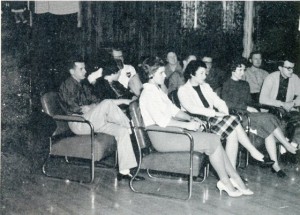
Watching the 1960 Election Results come in at Valley City State Teachers College, Nov. 1960
I haven’t been able to answer your request because every time I start I feel overwhelmed. Those years witnessed such huge, incredible changes in this country and, indeed, in the entire world!
I was in grade school when Kennedy was elected, I was in college when Johnson announced he would not run again. During those years we had “take cover” drills in grade school – we’d dive under our desks, as if that would protect us from a thermonuclear war! I spent much of my childhood thinking I was going to die every time I heard a plane overhead and, since I lived not too far from LaGuardia airport, I thought I was going to die very often.
It was in 1967 that Israel took over East Jerusalem and the West Bank after the amazing 6 Day War; as a Jew, I was thrilled because my fellow Jews would no longer be seen as the small, timid, Yiddish-speaking people of my grandparents’ era, but, rather, as miracle-working soldiers and pioneers. It was a very, very heady time for American Jews, we thought Israel had won security from Arab attacks; we had no inkling of what lay ahead. I was graduated from high school in ’67, and I spent that summer in Israel; I visited the Western Wall before the Old City had been cleaned up and restored, I was with the crowd that walked around the walls of the Old City on Tisha B’Av (a tradition for that holy day of mourning for the fallen Temple) for the first time since 1948.
When I went off to college that fall, the ’60s were still part of the ’50s; we still dressed up to go into town, with gloves (white cotton ones in summer) and chic little hats that matched our suits. I remember I had a pink suit, though not one that resembled Jackie Kennedy’s. Those college years were scary and confusing, especially since I was only 16 when I was a freshman, totally unprepared for the turmoil that started in 1968 with the war protests, the student strikes, the free love movement, drugs, hippies, yippies, the violence at the Democratic Convention, the assassinations of Martin and Bobby. I think we became another country that year, one which my parents, I am certain, never reconciled.
As an aside, I have a connection with Mario (Bob) Savio, who led the Berkeley student uprisings. My Dad was Savio’s high school principal! Savio was the valedictorian and there was concern about his being able to give the valedictory address at the graduation because he had a terrible stutter. My Dad arranged for one of the speech teachers (I believe her name was Marie Dresser or Dressler) to coach Savio and, in the end, Savio gave his speech flawlessly, without a single stutter. Meanwhile, Savio’s father announced that he wasn’t going to let his son go to college – “I never went to college so my son doesn’t need to go to college either”. My Dad invited Savio’s parents into his office and managed to convince the father (the mother wanted her son to get a college degree, but theirs was an old fashioned Sicilian household, and the father ruled) to let Mario go to college. So, indirectly my Dad was responsible for the Berkeley student uprisings in ’64, which presaged the changes that would occur in ’68!
Those were also the years of the new feminist movement and, since I went to Smith College, the Alma Mater of both Betty Friedan and Gloria Steinem (not to mention Sylvia Plath, Anne Morrow Lindbergh, Julia Child, Nancy Reagan and Barbara Bush) feminism played quite a role in my college years. Gloria Steinem spoke at my graduation, and my Mom, who was firmly convinced of the inferiority of women, was shocked and appalled by the things Steinem said. The car ride home after the graduation, all three hours, was a steady monologue from my Mom about how anything a woman could do, a man could do better, and women should know their place and should not speak so brazenly, and so on.
Oh, how the world changed, and for the better!
The civil rights movement was another huge influence in those years, another shocker for both of my parents, who believed people of African descent were intellectually inferior. I had African American friends for the first time in college, another step in a huge journey!
I know this isn’t written well; there isn’t any way to summarize it all briefly, and I’m tired right now and still recovering from eye surgery, so the computer screen is a bit of a blur. I hope I’ve conveyed some of the incredible changes of those years.
Peter Barus: I searched my files on “Kennedy,” and the following came up, to my surprise. This was published [about2007], I think, on
Ezili’s list [a Haitian who advocates on Haiti matters], where the article was that inspired it [What colonial education did to Africans | Ayi Kwe Armah]. I send it along because it reflects exactly my answer to your question, only touching on the subject of where I was then as a point of departure. Reading it over, I don’t see any word I would change.
This caught my attention, as in the year John F. Kennedy was shot, I, who would be described as a white, middle class American teenager, was receiving a colonial education in Nigeria. It was indeed, as this author puts it succinctly, an atrocious lie. In confronting this lie, I found myself surrounded by Nigerian kids my own age, who were living out the pretense that they had swallowed it hook, line and sinker, although it was clear they knew better. So it was a bizarre situation, in which the language of ordinary conversation admitted of no flaw in the seamless mythology of colonialism, even now that Nigeria was supposedly independent. We were forced to attempt to make sense in some way, around or under it; and in this we mostly failed miserably, and without understanding what was going on.
Upon my return to my own familiar version of Planet Earth, the northeastern United States of America, I discovered another astonishing revelation: the education offered here, with its magnificent schools, was an atrocious lie!
In the forty-odd years since I have tracked this lie to its source, I think. It was not easy, and I still cannot quite trust my own senses in this. But the Liar, I have discovered, is my humble self.
We all tell a story about life as it occurs to us. Something happens, and we speak about it, even if we appear silent. It is in describing to ourselves what we see, hear and feel that we erect this edifice of self-deceit. We do not make it up all at once out of whole cloth, but pile one stone of judgement and evaluation upon another, as it were. What I spoke of yesterday has now become the foundation of my belief of today, and shapes what I can build upon it. As I go along I erect a great deal of scaffolding to prop up the weak points in this structure of fiction I have built so carefully.
Why? Why do I say this, and why, if it is true, do I continue to build this fictional world? This is simple: it is a built-in function of the human brain. We are not designed to handle reality, uncooked. It is too fast, too chaotic, and too meaningless for us to survive it. So our brains have become clever at building models of the life around us, and these models, though they are completely made-up, are very effective as survival tools. They can also be very beautiful and rich, supporting magnificent traditions of human civilization, community and relationship. Left to themselves such traditions can produce generations of happy, healthy people, living lives of peace and joy. But our world is shrinking as populations grow. In Africa, many of these civilizations were destroyed in the encounter with the European version. But it is a mistake to think this had anything to do with their relative value. And it is a worse mistake to believe that today there is a “clash of civilizations” in which we must choose sides and join the battle.
When my brain-model of life does not agree with anothers, I discover just how deeply I am invested in the supposed truth of my perceptions. In my case, moving to Nigeria while a young person, and then moving back again, disconnected my attachment to my world sufficiently to provide me with a healthy skepticism about what many others take for granted.
I witnessed firsthand what the Sudan Interior Mission accomplished in Nigeria in the sixties, just about four years after “Independence.” Their version of education was abusive, repressive and violent, and all in the name of Jesus Christ. One of the students who graduated from my school learned these lessons well. He was to become the Head of State, plunging Nigeria into a generation of political corruption, leaving her ripe for the outrageous plunder that continues today.
The evils done by nations are hardly planned by evil masterminds. Rather they are the result of the destruction of communities’ very frames of reference for living. We see this now in Haiti, as the US State Department labors under a wholly inadequate and wrong-headed set of beliefs about history, the region, the people and the problems that only serves to wreck what functional models still exist. This cannot be fought head-to-head, though there often seems little alternative, because the models and maps by which we live from day to day are destroyed, leaving us without an operating system, perverting our own words before they are heard, twisting our actions to strip them of our intentions. Today’s victims and heroes become tomorrow’s oppressors and villains. Just look at what Israel has done to the Palestinians: victims of the Nazi genocide, now putting the screws to hapless Arab peoples. Am I antisemitic to say such a thing? Of course not. I am a white man, holding my own people to account for atrocities committed against people of darker skin color. I know only too well whereof I speak.
How to deal with this? One way is popularly called “speaking truth to power.” The reason this can be effective is that there is truth that is transcendent, that is true regardless of what our mental pictures indicate. This kind of truth is simple and undeniable. It can be demonstrated even to the willfully blind and deaf. It is contextual, meaning, it shapes our very perceptions of events. Such truth is decisive without coercion.
Our job, then, is to discern what these truths might be, and stand in them, and speak them loudly and unflinchingly. A characteristic of such truth is that it resonates with something deep in human being. It does not exhort us to hatred, or to deception, or to selfishness. And it recognizes the humanity of the other, even when that one is perpetrating terrible crimes upon the community. Ultimately it has the power to break the cycle of revenge and shame that grips us even after the small victories that seemed to liberate, but only transferred the bonds from dead to living hands.
Speaking and listening contain the keys to true power, power as distinct from force. Listening can be as creative an action as speaking. Truth can be spoken or listened into being, and we can all find examples of this in our own lives.
This is why I remain hopeful for our world, for our humanity, for our future. I thank you for the profoundly effective work you are up to, and I thank your friends and relations who have given so much as well. It is not the victories or defeats, but who we show ourselves to be in the struggle, that counts.
Carol Turnbull: OK, sucked me in here with that terrific
Brian Lambert column. I am so sick of various “experts” coming out of the woodwork now (including on the front page of a recent Pioneer Press) to declare Oswald the “lone assassin.” (Some of them, of course, are promoting their recent books.)
I certainly remember “where I was” when JFK was shot (I had stayed home from work that day to play organ for the funeral of the president of Herbergers [Department stores]). Some years ago I got a little tired of all the conspiracy theories, and decided to do my own investigation. I totally believed that I would quickly decide in favor of the “official” explanation. Quite the opposite, as it didn’t take very long at all to say “Something is really wrong here.” I eventually collected a large 3-ring binder full of what I found – which is entirely from the Warren Commission Report and Exhibits, plus the subsequent Church Committee investigation. I got a bit obsessed, haunting the pre-remodeled downtown St. Paul library, where one had to go upstairs and take a teeny elevator into the depths to access the Warren Commission Exhibits, etc. (I think they’re out in the open now…) Guess I’ll have to trot out that notebook for the assassination anniversary as I’ve forgotten a lot.
I’ve worked in a number of law offices, and any attorney doing the kind of job the Warren Commission did would probably be thrown out of court. When you have supporting exhibits to a case, they’re carefully labeled and then an index is created. The Warren Commission Report had 20-some books of Exhibits – all thrown together helter-skelter with no index. A wonderful lady later spent a good deal of her time in indexing them. Sometimes what you find in the Exhibits contradicts what is in the actual Report.
The Warren Commission was told what to find – and then they obediently found it. (Gee, I’m sure that never goes on today…) Government officials were terrified that the Commission would actually find a link to Russia – or Cuba’s Castro – and all hell would break loose.
There were so many entities that hated JFK. The Mafia (per Lambert column, bless him) – A Mafia don was quoted as saying it wasn’t enough to get rid of Bobby Kennedy because if you cut off the dog’s tail, it would just grow a new one – but if you cut off the head, the tail would go away. The CIA was furious with Kennedy because of what they considered his betrayal in the Bay of Pigs (as were the Cubans in southern Florida). And back then, the CIA pretty much was running amok (that never happens now, of course). The military establishment was unhappy as it was rumored Kennedy planned to start bringing the troops home from Vietnam. (Some claim he had signed an order to that end which LBJ quickly rescinded.) Even J. Edgar Hoover was aggrieved, as word had leaked that Kennedy was going to force him into retirement after the next election. (He was past mandatory retirement age but was still there because he had “the dirt” on everybody…) Word was also out that Kennedy was planning to replace LBJ on his next ticket. It was “a perfect storm.”
I do not know who shot Kennedy – I don’t have a pet theory. That doesn’t mean that Oswald did it. It means that the investigation was incredibly sloppy (by design or otherwise), and now we will never know.
Oswald may, or may not, have shot AT Kennedy. Given his cheap rifle, and the time it took to fire it, there’s no way he could have gotten off three shots in the time frame (and I think any credible researcher agrees that there were at least three shots). A subsequent government investigation determined there were more than three, and maybe as many as seven. (I see that some yokel – who is a regular on Fox News – claims to have just done his own research, refuting that research. And he wrote a book.) The motorcade came down the street, then had to come almost to a stop underneath the Book Depository in order to make a very sharp corner. If Oswald was up in a window, why didn’t he shoot the President while he was right there? Instead, we’re supposed to believe he waited until the motorcade was down the street a ways, with a tree and Secret Service men standing on running boards obscuring his view – and then accomplished a shooting feat like no other.
Kennedy wasn’t perfect. We’ve learned a lot about his flaws and foibles over time. But in his short while in office, he inspired us to be a better people. He certainly deserved that his true killer(s) be brought to justice – and so did we.
Burt Berlowe: I never got a chance to vote for JFK. When he was elected in 1960, I was two years away from the legal voting age of 21. I had just begun a stint as a journalism student at the University of Arizona. Raised by parents who were active Democrats, I had become an interested observer of national politics.
When first heard Kennedy speak I was moved by his youth, his vigor, his intellect and poetic rhetoric, and, later by his call to public service. I remember being transfixed listening to one of his speeches broadcast over a loud speaker on the university campus.
The 1960s were clearly a watershed time in our country when the nature of the American Dream changed dramatically from the isolated self-centered yearnings that focused on individual welfare, societal ambition and conformity, into an emerging new reality that would expand the nature of dreams and visions beyond the parochial and personal to encompass the common good, a concerned view of the state of humanity and what could be done about it — a new journey into previously unknown places and bigger dreams with unpredictable and challenging outcomes.
The seven years of the Kennedy and Johnson administration were seminal moments in American history. They were the best of times and the worst of times when tragedy and triumph shadowed each other. They were a punctuation mark on our most turbulent and transformative decade.
JFK became the first president to have televised press conferences and his youth and charisma, along with his attractive family, made him a media celebrity. His election had signaled a sea change in American politics. He spoke eloquently about passing the torch to a new generation. He became the symbol and catalyst of a new generation of political leaders replacing the older, more established men who had preceded him in office, a trend that unfortunately ended with his presidency, along with the promise and potential of great things in a second term. Still, the imprints of his administration remain embedded in our culture – the step back from the precipice of nuclear war and the treaty to ban those weapons – landmark civil rights legislation, the peace corps and call to public service, a commitment to explore outer space – the feeling that anything was possible if we had the will to do it. After years of older, establishment politicians running the country, JFK announced that the torch was being passed to a new generation. He became a symbol of that new generation. For those of us who were still young, it was an inspiring message.
As a young president invoked a call for citizen activism and public service, the sixties generation emerged from the age of innocence and despair overflowing with hope. Students for a Democratic Society (SDS)staged a civil rights conference in spring of 1960. A National Student Association (NSA) conference at the University of Minnesota drew more than a thousand participants, becoming at the time the only national forum for students. The Student Nonviolent Coordinating Commmittee (SNCC) gathered for a retreat. Led by groups like SNCC, the movement began its push into the black belt confederacy in the fall of ‘61, leading to the dramatic freedom riders movement. New and unexpected grassroots movements cropped up everywhere, among blacks, peace people, students, women, environmentalists, gray panthers, gays and lesbians, all organizing around an anti-bureaucratic model. The early ‘60s saw the dramatic rise and impact of the civil rights and women’s movements and mass protests against the Vietnam War.
It was a time of graduation for America. The stage was being set for the commencement of a new era of political and social change, a harsher, disruptive time when much of America did a full turn from the previous decade of innocence and family values and flag-waving super patriotism, questioning the policies, mores and standards of the previous decade, standing up for social change and hope for better times. The rebellion took many forms – from the raucous demonstrations against war and inequality to the mellow, idealistic “dawning of the Age of Aquarius” where a new counterculture generation asked “what’s wrong with peace, love and understanding,” and attempted to forge a new society based on that premise.
These were the new children of light, the pacifists and idealists of the time driven to struggle for a better world, echoing the words of Camus who wrote that “hope lies in man’s decision to be stronger than his condition.” As the Vietnam war and the draft interrupted young people’s dreams and hopes, an inspiring free speech movement and a burgeoning antiwar movement began on campuses across the nation.
In June of 1963, President Kennedy began a visible turn towards peace and an end to the cold war era. Addressing students at American university on the 10th he rejected a collision course with communist governments saying “if we cannot end our differences a least we cab help make the world a safe place for diversity. For in the final analysis our most basic link is that we all inhabit this small planet. A month later, he signed the nuclear weapons treaty banning tests in the atmosphere in space and beneath the sea.
There were indications that he may have ended US involvement in Vietnam in a second term – or at least considered it. What a change in history that would have been. The dreams and hopes that were shattered by the bullets that hit him never have come to full fruition. Still, there is a reason why so many remember that time and realize that it can never happen again.
For awhile it seemed like 1963 would end on a positive note – the march on Washington and MLK’s I have a dream speech , the beginnings of the women’s movement – the ways in which peaceful civil disobedience had withstood the violence that tried to stop it, the growing citizen movements that were standing up for peace, civil and human rights.
Then the assassination of JFK on November 22, 1963 shattered the dreams and hopes of millions of Americans and people from around the world who had believed in the coming of Camelot. It was, at least for the moment, a triumph for violence, the profound statement that a few gunshots could bring down a popular young American president and send the world into a state of shock. We felt suddenly vulnerable and that we had somehow lost our innocence and confidence in the future. In those moments of numbness, would we forget all that had been accomplished during that seminal year in the areas of civil and human rights, in the hard-earned victories of ordinary people waging nonviolence and popular resistance. Would the violent moments – the Medgar Evers and JFK assassinations – the bombing of an elementary school, the beating of protestors, be the most remembered times of that year?
History tells us otherwise. Within a few weeks of the JFK tragedy, citizens were back on the streets peacefully demanding that JFKs promises of action on civil rights be fulfilled. Within a few months into the new year of 1964, President Johnson had signed landmark civil rights legislation. The people won. The dream remained alive. Like many other Americans, I have mixed feelings about the Johnson years – the landmark achievements in civil rights and other domestic issues seemed to be overshadowed by the escalating war in Vietnam that led to his decision not to seek a second term and throw the nation into political turmoil. The Kennedy assassination was a stunning realization of the impacts of gun violence and political turmoil – one of a series of such events targeting promising young political leaders in the 1960s. It had a major impact on the young people of that generation but has largely been forgotten by more recent generations who have no memory of that time. There have not been political assassinations in the United States in recent years. But the 20th century was the most violent in history. Instead of presidential assassinations we now have gun violence against average citizens in supposedly safe places to congregate in schools, church, movie theaters, shopping malls sports events, and other public venues.
Fifty years ago, in the early summer of 1963, I graduated from the University of Arizona and set out to pursue a career in my chosen field, moving from the cloistered and disciplined academic environment into the larger, more challenging world of professional pursuits and enduring relationships.
That year also marked another kind of graduation for me — an evolution from a concerned but largely passive observer of the political and social scene in America to an active participant in the process of social change, from reflecting and studying and dreaming to an active journey into the world of possibilities and solutions. I was inspired by Kennedy’s soaring rhetoric, youthful vigor, his compassion for the common man and his commitment to public service, and devastated by the violence that put an end to Camelot and left a trail of tears but also the remnants of hope on the American landscape. On the anniversary of his assassination, the tears and the hope mingle again in memory along with what ifs and what might have beens and remaining questions about who was responsible for the tragic act of violence.
It would be six more years before I would take the big, transformative step of participating in a national peace demonstration a year after the assassination of Martin Luther King and Bobby Kennedy, the tumultuous Democratic convention, the election of Richard Nixon and the perpetuation of the Vietnam war, all of which would lead to years of political and journalistic activism.
The Kennedy-Johnson years set the stage for this dramatic personal evolution as well as the transformation of our country’s politics, culture and way of life. As we re-visit the hope of the King speech and the despair of political assassination, the legacy of that time continues to manifest itself in the extensive social change movements that rise up constantly to campaign for peace, justice and a better world. Because of what began a half-century ago, we will never be the same again.
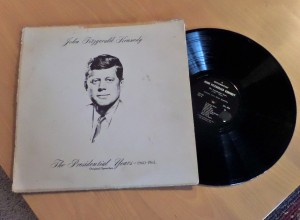
Commemorative Record of JFK speeches 1960-63, published in early 1964
Front and back jacket of a 33 1/3 rpm phonograph record of extracts of John F. Kennedy speeches 1960-63:
JFK Speeches 001 A friend found this record in a garage sale and gave it to me quite a number of years ago; some years later another friend transferred the speeches on the record to cassette tape, and if anyone is interested, I’ve now had the cassette translated to CD format. The speeches are public record.
Dick Bernard: I was 20 years old when John F. Kennedy was elected President in 1960. I was a junior in college and not quite old enough to vote. Two years later, in October, 1962, I watched JFK’s speech about the Cuban Missile Crisis in an Army barracks at Ft. Carson CO. We soldiers watched carefully as Kennedy spoke to us on the 9″ black and white TV owned by the Mess Sergeant. Cuba was not an abstract deal to us that night.
Of all the impact-full acts of these eight years, Kennedy’s “ask not what your country can do for you, ask what you can do for your country” stands out. Two of my sisters, one in 1966-68, and the other, currently, served in the Peace Corps.
As for President Johnson, while he’s remembered for Vietnam, he had a huge positive impact as well. I believe it was when he signed the Voting Rights Act of 1965 that he said this singular action would cost the Democrats political power for the next generation. It was a true statement, and it reflected the courage and determination he had in this and other initiatives to do the proper thing for the country.
Of course, the business of race (and other things) remain very much alive and well yet today, but our country forever changed in the eight years of 1961-69.
Both Presidents believed in the power of the people.
I always recommend
Martin Luther King’s 1964 book, “Why We Can’t Wait”, reflecting on the year 1963, published soon after Kennedy’s assassination, as a great window into the political life and times of the early 1960s. Especially read the last chapter. Only 34 when the book was published, Dr. King comments on Presidents he already knew personally, including Kennedy and Johnson.
Lyndon Johnson was a casualty of the Vietnam War, as was Hubert Humphrey.
By happenstance, I am an early Vietnam era military veteran, and my two brothers were directly involved in Vietnam. Those divisive years all came together for me in the fall of 1982 when I happened to be in Washington D.C. the weekend the Vietnam Memorial was dedicated. Never have I had a more powerful experience. I wrote about this in my 1982 holiday letter:
Vietnam Mem DC 1982001
But all is not quite so simple. Just a week or so ago a good friend of mine showed me a Declaration of World Citizenship signed by President Johnson July 8, 1965. I wrote about this Declaration a few days ago, on November 9. You can read it
here. In its quiet way, this declaration reflected a positive idea of the U.S. in the World, and led to subsequent declarations in Minnesota and many other places. Ideas like this one need to be resurrected.
Both Kennedy and Johnson were seasoned U.S. Senators when elected as President and Vice-President. Kennedy was a child of the elite; Johnson was a poor boy from the Texas Hill Country. My Dad and I visited Johnson’s birthplace in 1983. In many ways they translated their early experiences into leadership of a country.
This odd couple in so many ways took risks, inspiring citizens to action in diverse ways. Both made a positive difference. They made big mistakes. To be President of this immense complicated country is not a task many of us would relish. This was true for both President Kennedy and President Johnson.
POST COMMENT NOV. 22, 2013: Last evening I listened to the extracts of 16 important JFK speeches from 1960-63 (see photo above – I now have the extracts on CD), followed almost immediately by a fascinating talk by Prof. Ragui Assad about the recent and ongoing political situation in his home country of Egypt.
In a sense, in a couple of hours I revisited 50 years of U.S. and international history.
In the extract of one speech, JFK spoke of America’s 185 million population at his time in history; Prof Assad said Egypts population today is 84 million. Fifty years ago the U.S. had roughly twice the population of Egypt. (The U.S. population today is about 315 million; at the time of the Civil War, about 30 million.)
As the political world of Kennedy and Johnson was extremely complicated; so is the politics of present day Egypt and everywhere. But we tend to make such histories simple and shorthand them, and miss a lot.
In 1961, the enemy was said to be generic Communism; today it seems to have been replaced by radical Islam. One wonders if the enemy was/is is a real one, or one concocted or inflated by those interested in keeping populations split for political gain. Or something in between, in part real, in part made up.
We learned in 90 minutes last night that Egypt has complex political factions and factors now, full of nuances provided by its national, regional and international history; so did America then, and now.
In both, there seems a constant tension for a dominant ideology to emerge and be in control. Any us-them ideology that rises to the top of the heap always seems to fail, and we we never seem to learn that a sense of control is always temporary.
It occurred to me again last night that the best one can do is to work off the rough edges and gently move a society, small or large, in a more positive direction. And it is very important who the President is, but the President is a prisoner of events completely beyond his or her control.
Kennedy and Johnson are dead, unable to control the interpretation of their records as chief executives of this country.
I think on balance that they impacted positively.
But that’s just me.
How will we look back on today, 50 years from now?
